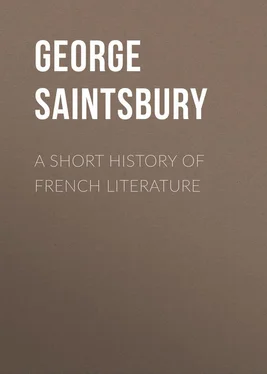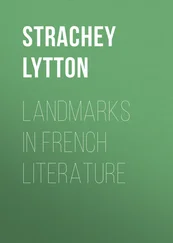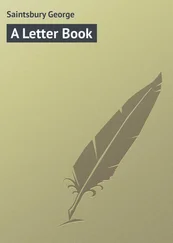George Saintsbury - A Short History of French Literature
Здесь есть возможность читать онлайн «George Saintsbury - A Short History of French Literature» — ознакомительный отрывок электронной книги совершенно бесплатно, а после прочтения отрывка купить полную версию. В некоторых случаях можно слушать аудио, скачать через торрент в формате fb2 и присутствует краткое содержание. ISBN: , Жанр: foreign_prose, на английском языке. Описание произведения, (предисловие) а так же отзывы посетителей доступны на портале библиотеки ЛибКат.
- Название:A Short History of French Literature
- Автор:
- Жанр:
- Год:неизвестен
- ISBN:http://www.gutenberg.org/ebooks/33062
- Рейтинг книги:3 / 5. Голосов: 1
-
Избранное:Добавить в избранное
- Отзывы:
-
Ваша оценка:
- 60
- 1
- 2
- 3
- 4
- 5
A Short History of French Literature: краткое содержание, описание и аннотация
Предлагаем к чтению аннотацию, описание, краткое содержание или предисловие (зависит от того, что написал сам автор книги «A Short History of French Literature»). Если вы не нашли необходимую информацию о книге — напишите в комментариях, мы постараемся отыскать её.
A Short History of French Literature — читать онлайн ознакомительный отрывок
Ниже представлен текст книги, разбитый по страницам. Система сохранения места последней прочитанной страницы, позволяет с удобством читать онлайн бесплатно книгу «A Short History of French Literature», без необходимости каждый раз заново искать на чём Вы остановились. Поставьте закладку, и сможете в любой момент перейти на страницу, на которой закончили чтение.
Интервал:
Закладка:
While the figure of Alexander served as centre to one group of fictions, most of which were composed in Chanson form, the octosyllabic metre, which had made the Arthurian romances its own, was used for the versification of another numerous class, most of which dealt with the tale of Troy divine.
Roman de Troie.
Here also the poems were neither entirely fictitious, nor on the other hand based upon the best authorities. Dares Phrygius and Dictys Cretensis, with some epitomes of Homer, were the chief sources of information. The principal poem of this class is the Roman de Troie of Benoist de Sainte More ( c. 1160). This work 58 58 Ed. Joly. Rouen, 1870.
, which extends to more than thirty thousand verses, has the redundancy and the long-windedness which characterise many, if not most, early French poems written in its metre. But it has one merit which ought to conciliate English readers to Benoist. It contains the undoubted original of Shakespeare's Cressida. The fortunes of Cressid (or Briseida, as the French trouvère names her) have been carefully traced out by MM. Moland, Héricault 59 59 Moland and Héricault's Nouvelles du XIVème Siècle . Paris, 1857. Joly, Op. cit. See also P. Stapfer, Shakespeare et l'Antiquité . 2 vols. Paris, 1880.
, and Joly, and form a very curious chapter of literary history. Nor is this episode the only one of merit in Benoist. His verse is always fluent and facile, and not seldom picturesque, as the following extract (Andromache's remonstrance with Hector) will show: —
Quant elle voit qe nëant iert,
o ses dous poinz granz cous se fiert,
fier duel demaine e fier martire,
ses cheveus trait e ront e tire.
bien resemble feme desvee:
tote enragiee, eschevelee,
e trestote fors de son sen
court pour son fil Asternaten.
des eux plore molt tendrement,
entre ses braz l'encharge e prent.
vint el palés atot arieres,
o il chauçoit ses genoillieres.
as piez li met e si li dit
'sire, por cest enfant petit
qe tu engendras de ta char
te pri nel tiegnes a eschar
ce qe je t'ai dit e nuncié.
aies de cest enfant pitié:
jamés des euz ne te verra.
s'ui assembles a ceux de la,
hui est ta mort, hui est ta fins.
de toi remandra orfenins.
cruëlz de cuer, lous enragiez,
par qoi ne vos en prent pitiez?
par qoi volez si tost morir?
par qoi volez si tost guerpir
et moi e li e vostre pere
e voz serors e vostre mere?
par qoi nos laisseroiz perir?
coment porrons sens vos gerir?
lasse, com male destinee!'
a icest not chaï pasmee
a cas desus le paviment.
celle l'en lieve isnelement
qi estrange duel en demeine:
c'est sa seroge, dame Heleine.
Other Romances on Classical subjects.
The poems of the Cycle of Antiquity have hitherto been less diligently studied and reprinted than those of the other two. Few of them, with the exception of Alixandre and Troie , are to be read even in fragments, save in manuscript. Le Roman d'Enéas , which is attributed to Benoist, is much shorter than the Roman de Troie , and, with some omissions, follows Virgil pretty closely. Like many other French poems, it was adapted in German by a Minnesinger, Heinrich von Veldeke. Le Roman de Thèbes , of which there is some chance of an edition, stands to Statius in the same relation as Enéas to Virgil. And Le Roman de Jules César paraphrases, though not directly, Lucan. To these must be added Athis et Prophilias (Porphyrias), or the Siege of Athens, a work which has been assigned to many authors, and the origin of which is not clear, though it enjoyed great popularity in the middle ages. The Protesilaus of Hugues de Rotelande is the only other poem of this series worth the mentioning.
Neither of these two classes of poems possesses the value of the Chansons as documents for social history. The picture of manners in them is much more artificial. But the Arthurian romances disclose partially and at intervals a state of society decidedly more advanced than that of the Chansons. The bourgeois , the country gentleman who is not of full baronial rank, and other novel personages appear.
Note to Third Edition. – Since the second edition was published M. Gaston Paris has sketched in Romania and summarised in his Manuel , but has not developed in book form, a view of the Arthurian romances different from his father's and from that given in the text. In this view the importance of 'Celtic' originals is much increased, and that of Geoffrey diminished, Walter Map disappears almost entirely to make room for divers unknown French trouvères, the order of composition is altered, and on the whole a lower estimate is formed of the literary value of the cycle. The 'Celtic' view has also been maintained in a book of much learning and value, Studies on the Legend of the Holy Grail (London, 1888), by Mr. Alfred Nutt. I have not attempted to incorporate or to combat these views in the text for two reasons, partly because they will most probably be superseded by others, and partly because the evidence does not seem to me sufficient to establish any of them certainly. But having given some years to comparative literary criticism in different languages and periods, I think I may be entitled to give a somewhat decided opinion against the 'Celtic' theory, and in favour of that which assigns the special characteristics of the Arthurian cycle and all but a very small part of its structure of incident to the literary imagination of the trouvères, French and English, of the twelfth century. And I may add that as a whole it seems to me quite the greatest literary creation of the Middle Ages, except the Divina Commedia , though of course it has the necessary inferiority of a collection by a great number of different hands to a work of individual genius.
CHAPTER V
FABLIAUX. THE ROMAN DU RENART
Foreign Elements in Early French Literature.
Singular as the statement may appear, no one of the branches of literature hitherto discussed represents what may be called a specially French spirit. Despite the astonishing popularity and extent of the Chansons de Gestes, they are, as is admitted by the most patriotic French students, Teutonic in origin probably, and certainly in genius. The Arthurian legends have at least a tinge both of Celtic and Oriental character; while the greater number of them were probably written by Englishmen, and their distinguishing spirit is pretty clearly Anglo-Norman rather than French. On the other hand, Provençal poetry represents a temperament and a disposition which find their full development rather in Spanish and Italian literature and character than in the literature and character of France. All these divisions, moreover, have this of artificial about them, that they are obviously class literature – the literature of courtly and knightly society, not that of the nation at large. Provençal literature gives but scanty social information; from the earlier Chansons at least it would be hard to tell that there were any classes but those of nobles, priests, and fighting men; and though, as has been said, a more complicated state of society appears in the Arthurian legends, what may be called their atmosphere is even more artificial.
The Esprit Gaulois makes its appearance.
It is far otherwise with the division of literature which we are now about to handle. The Fabliaux 60 60 The first collection of Fabliaux was published by Barbazan in 1756. This was re-edited by Méon in 1808, and reinforced by the same author with a fresh collection in 1823. Meanwhile Le Grand d'Aussy had (1774-1781) given extracts, abstracts, and translations into modern French of many of them. Jubinal, Robert, and others enriched the collection further, and in vol. xxiii. of the Histoire Littéraire M. V. Le Clerc published an excellent study of the subject. A complete collection of Fabliaux has, however, only recently been attempted, by M. M. A. de Montaiglon and G. Raynaud (6 vols., Paris, 1872-1888).
, or short verse tales of old France, take in the whole of its society from king to peasant with all the intervening classes, and represent for the most part the view taken of those classes by each other. Perhaps the bourgeois standpoint is most prominent in them, but it is by no means the only one. Their tone too is of the kind which has ever since been specially associated with the French genius. What is called by French authors the esprit gaulois – a spirit of mischievous and free-spoken jocularity – does not make its appearance at once, or in all kinds of work. In most of the early departments of French literature there is a remarkable deficiency of the comic element, or rather that element is very much kept under. The comedy of the Chansons consists almost entirely in the roughest horse-play; while the knightly notion of gabz or jests is exemplified in the Voyage de Charlemagne à Constantinople , where it seems to be limited to extravagant, and not always decent, boasts and gasconnades. More comic, but still farcical in its comedy, is the curious running fire of exaggerated expressions of poltroonery which the Red Lion keeps up in Antioche , while the names and virtues of the Christian leaders are being catalogued to Corbaran. In the Arthurian Romances also the comic element is scantily represented, and still takes the same form of exaggeration and horse-play. At the same time it is proper to say that both these classes of compositions are distinguished, at least in their earlier examples, by a very strict and remarkable decency of language.
Интервал:
Закладка:
Похожие книги на «A Short History of French Literature»
Представляем Вашему вниманию похожие книги на «A Short History of French Literature» списком для выбора. Мы отобрали схожую по названию и смыслу литературу в надежде предоставить читателям больше вариантов отыскать новые, интересные, ещё непрочитанные произведения.
Обсуждение, отзывы о книге «A Short History of French Literature» и просто собственные мнения читателей. Оставьте ваши комментарии, напишите, что Вы думаете о произведении, его смысле или главных героях. Укажите что конкретно понравилось, а что нет, и почему Вы так считаете.












